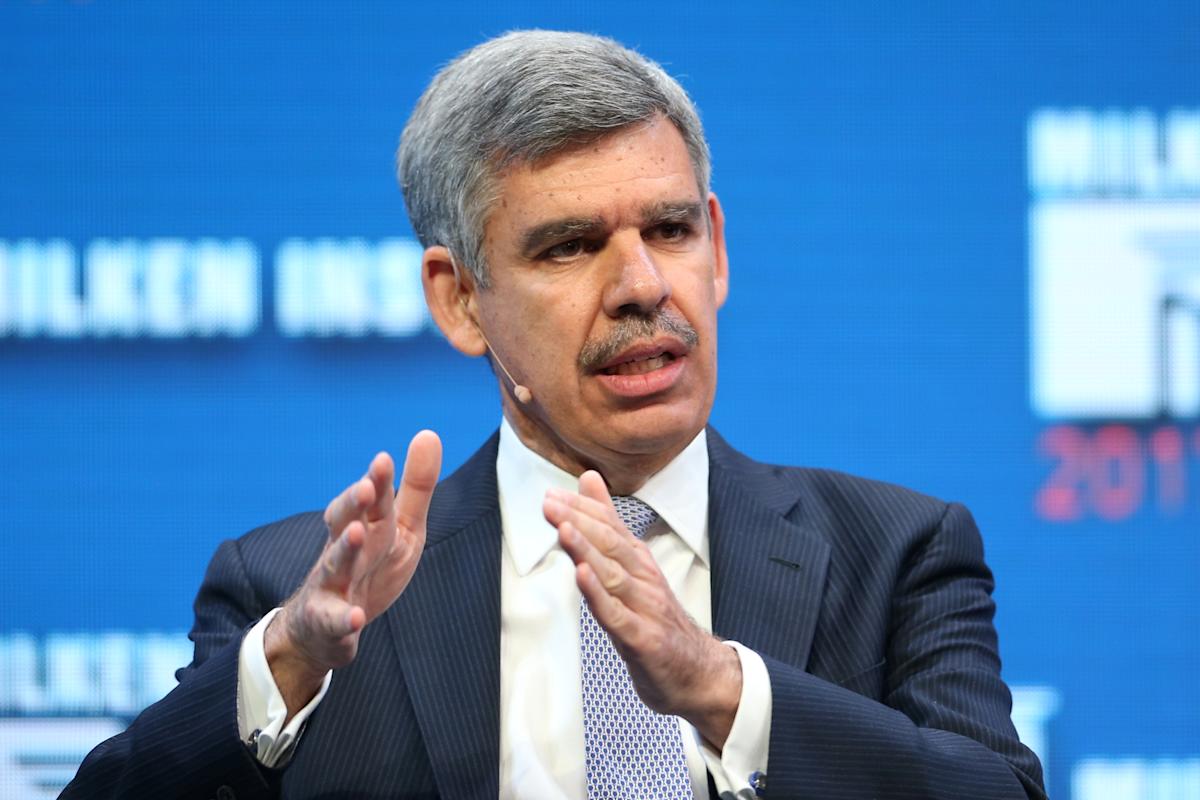Economist Mohamed El-Erian says AI’s ‘rational bubble’ could still end in tears
Artificial intelligence may be the hottest trade on Wall Street — but that doesn’t mean it won’t end painfully for some investors.
“We believe that we are in a rational bubble,” economist and former PIMCO CEO Mohamed El-Erian said at Yahoo Finance’s Invest event.
He added that while some investors may get burned, “the aggregate value of what’s being created is significant” and therefore, rational.
El-Erian, who previously chaired former President Obama’s Global Development Council, explained that this bubble — unlike the dot-com craze of the late 1990s — is underpinned by real technological progress and extraordinary long-term potential.
“The good news is that it’s a construct that will make us more innovative, more competitive,” he said. “The bad news is there will be tears, there will be losses because elements of it are elements of a bubble.”
Catch up on the latest moments from Yahoo Finance Invest
Signs of excess are already visible, El-Erian said, particularly in three areas. The first is what he describes as the “frontier,” or companies building foundational models.
“Not all of them are going to succeed, and yet all of them are attracting significant investment,” he said.
El-Erian also pointed to a largely overlooked challenge: the issue of “diffusion,” or getting AI technology integrated across the broader economy.
“Diffusion means getting AI into the workplace in an orderly … comprehensive fashion,” he said, noting the US lacks a clear national policy compared with countries like China. “We’ve got to get diffusion right, otherwise the promise of AI is not going to be fully realized.”
That policy gap could determine whether the US actually benefits from the AI revolution. So far, job security appears to be the most immediate casualty. According to a report from Challenger, Gray & Christmas, October saw the largest number of layoffs since 2003. In the technology sector, job cuts were largely tied to restructuring and AI integration.
El-Erian added that corporate behavior also reflects bubble-like tendencies. AI’s early movers like OpenAI (OPAI.PVT), Anthropic (ANTH.PVT), and Alphabet (GOOG) are commanding staggering valuations. But many companies are now branding themselves as AI-powered simply to attract investor attention — a dynamic that echoes the dot-com era.
Still, El-Erian said, it makes sense investors are pouring billions into the nascent technology, even as signs of froth begin to emerge.



Leave a Comment
Your email address will not be published. Required fields are marked *